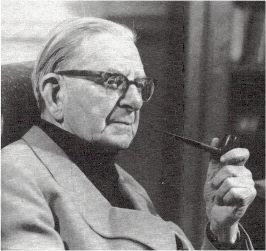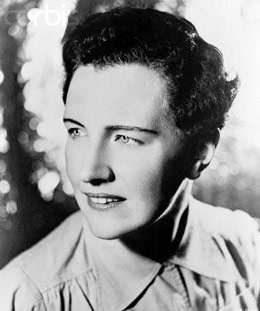A Quote by Gustav Mahler
We all return. It is this certainty that gives meaning to life and it does not make the slightest difference whether or not in a later incarnation we remember the former life. What counts is not the individual and his comfort, but the great aspiration to the perfect and the pure which goes on in each incarnation.
Related Quotes
If God really became incarnate, and if His Incarnation can with justice compel man to change his life,then we have no alternative but to conceive of this Incarnation as something which is still present and which will remain present for all future time. ... What happens in the liturgical celebration of the Eucharist is something for which all religions of mankind have exressed longing, dimly sensed was coming, and as a rule even prefigured- the physical presence of the divine Logos made man, and the presence of his sacrificial death, in the midst of the congregation celebrating the mysteries.
The difference between a man who is led by opinion or emotion and one who is led by reason. The former, whether he will or not, performs things of which he is entirely ignorant; the latter is subordinate to no one, and only does those things which he knows to be of primary importance in his life, and which on that account he desires the most; and therefore I call the former a slave, but the latter free.
One of the awful things about writing when you are a Christian is that for you the ultimate reality is the Incarnation, the present reality is the Incarnation, and nobody believes in the Incarnation; that is, nobody in your audience. My audience are the people who think God is dead. At least these are the people I am conscious of writing for.
Apart from it, the incarnation and the ministry would lose all their significance, the crucifixion would be but a martyrdom, and the cross a symbol of the victory of death over life. By the Resurrection it was that the Crucified One was "declared to be the Son of God with power," the great truth on which the Christian's faith is founded, and to which his hope is anchored. That Christ died for our sins is the Gospel of the Christian religion regarded as a human cult. The Gospel of Christianity goes on to declare "That He rose again the third day according to the Scriptures"
Each man in his life honors, and imitates as well as he can, that god to whose choir he belonged, while he is uncorrupted in his first incarnation here; and in the fashion he has thus learned, he bears himself to his beloved as well as to the rest. So, then, each chooses from among the beautiful a love conforming to his kind, and then, as if his chosen were his god, he sets him up and robes him for worship.
The true makes of history are the spiritual men whom the world knew not, the unregarded agents of the creative action of the Spirit. The supreme instance of this-the key to the Christian understanding of history-is to be found in the Incarnation- the presence of the maker of the world in the world unknown to the world. ... The Incarnation is itself in a sense the divine fruit of history-of the fullness of time-and it finds its extension and completion in the historic life of the Church.








































